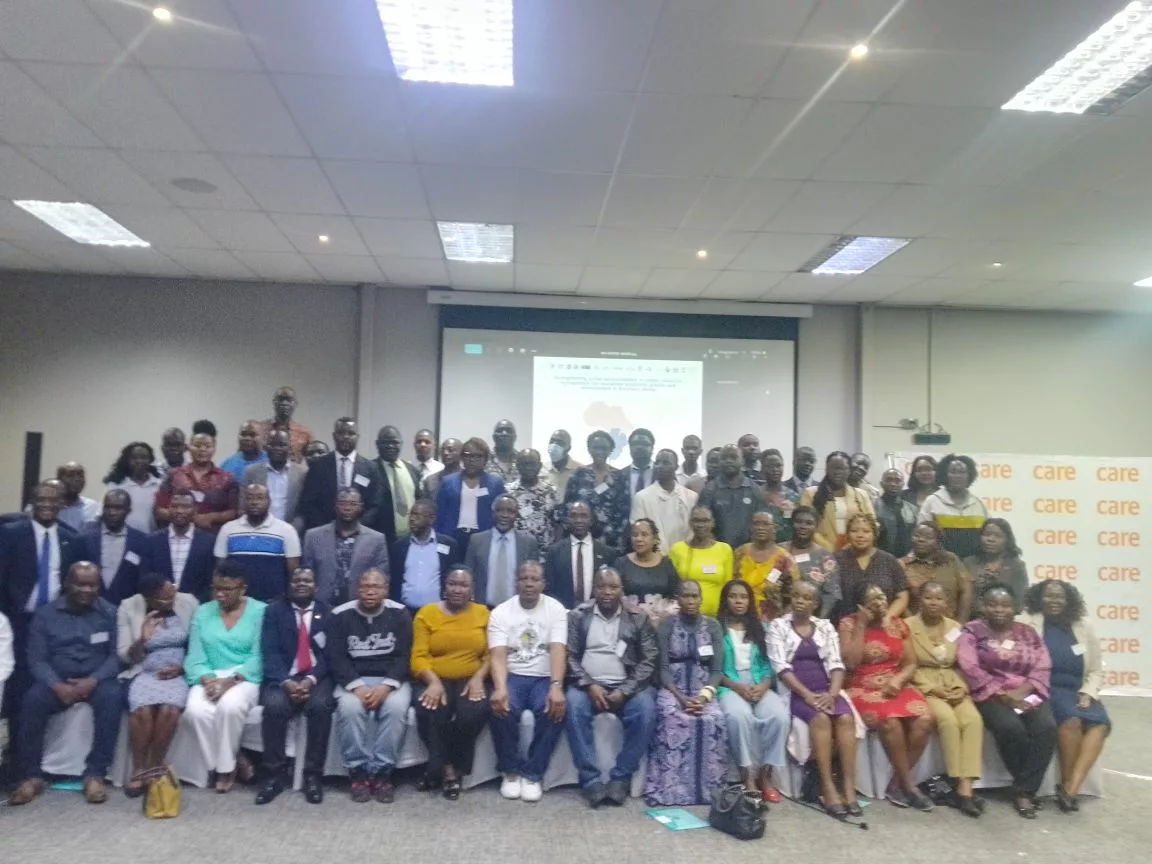|
Getting your Trinity Audio player ready...
|
Civil society organisations have this week praised the steady progress made towards implementation of the SADC Regional Indicative Strategic Development Plan 2020-2030 (RISDP) while noting that in some areas there remains more to be done. The final communique from the event can be found here.
The comments came after two days of discussion, planning, and workshops at the 4th Regional Dialogue for Non-State Actors (NSAs) on the SADC RISDP 2020-2030, held in Harare this week, just ahead of the SADC Heads of State and Government Summit. The Dialogue was co-convened by 16 organisations that work across the region and want to help implement the RISDP success.
Civil society participants were joined by representatives of SADC Parliamentary Forum and SADC Secretariats, highlighting their recognition of the importance of strong collaboration and communication with the people of the region.
Participants highlighted several successes in strengthening regional-level social accountability, including moves to establish the SADC Non-State Actors Forum and accreditation system, and the creation of SADC National Committees or coordination structures across 12 countries. As a key step for regional oversight, participants applauded progress towards a SADC Parliament, with the required 12 member states having signed the agreement to amend the SADC Treaty, a precursor to the Protocol that would establish it.
In particular sectors of focus, progress was seen with moves towards drafting the Regional Agricultural Investment Plan 2025-2030, and advancements in education with 80% of member states aligning with the SADC Qualifications Framework.
However, challenges were noted in areas such as health, education, and agricultural financing, with many countries not meeting regional targets; persistent youth unemployment, and the need for more effective climate change adaptation strategies. The slow establishment of the Regional Development Fund and the impact of the high costs of debt remain a pressing concern for sustainable financing development.
Key outcomes of the Dialogue included recommendations for facilitating sustainable development financing through establishing the SADC Regional Development Fund and accessing fair climate finance, increasing digital health monitoring tools for improved accountability, mainstreaming agroecology in SADC policies, and developing simplified trade rules to harness the benefits of the African Continental Free Trade Area.
In addition, the Dialogue made some key recommendations relating to accountability. These include:
- All Member States to resource inclusive SADC National Committees (SNCs), particularly in Madagascar, South Africa, Tanzania, and Zimbabwe, where SNCs are yet to be established.
- SADC to expedite the set up of the Regional NSA Engagement Mechanism.
- SADC and Member States to improve access to information to planning, implementing and reporting processes at both national and regional levels, and SADC to ensure civil society participation in the planned RISDP mid-term review.
- SADC Member States to submit timely progress reports to SADC Secretariat on the implementation of RISDP commitments and other regional agreements.
- SADC Member States to review laws, particularly those on gender-based violence and public finance management, to ensure they are in line with SADC PF Model Laws.
This year´s Dialogue is the last in which the Partnership for Social Accountability (PSA) Alliance will act as a co-convenor. The consortium-led project, which has been operating in five SADC countries since 2016 and has played a key role in embedding issues of social accountability in the implementation of the RISDP, closes at the end of the year. PSA Alliance held a reception after the Dialogue to celebrate the project´s successes and share important lessons learned.
The co-conveners of the 2024 Dialogue are Southern Africa Trust, the Economic Justice Network (EJN) of the Fellowship of Christian Councils in Southern Africa (FOCCISA), Southern African People’s Solidarity Network (SAPSN), Southern Africa Coordination Council (SATUCC), SADC Council of NGOs, Care International, Global Campaign for Education, Trust Africa, SADC Youth Forum (SAYoF), Agenda 2063 Media Network, GenderLinks, and the Partnership for Social Accountability (PSA) Alliance ((a consortium of ActionAid International (AAI), Public Service Accountability Monitor (PSAM) of Rhodes University, Eastern and Southern Africa Small Scale Farmers’ Forum (ESAFF) and SAfAIDS).
About the SADC RISDP 2020-2030: The RISDP covers key areas of regional integration: peace, security, and good governance (the foundation); industrial development and market integration (pillar I); infrastructure development in support of regional integration (pillar II); social and human capital development (pillar III); and cross-cutting issues of gender, youth, environment, climate change and disaster risk management. The full document is available at https://www.sadc.int/document/sadc-regional-indicative-strategic-development-plan-risdp-2020-2030






